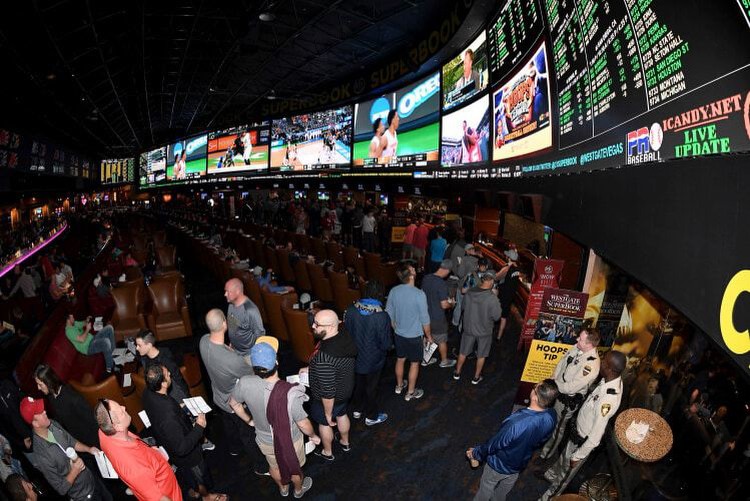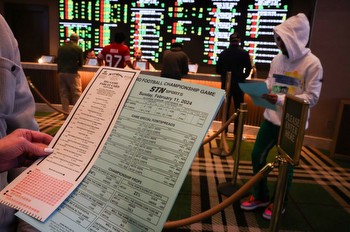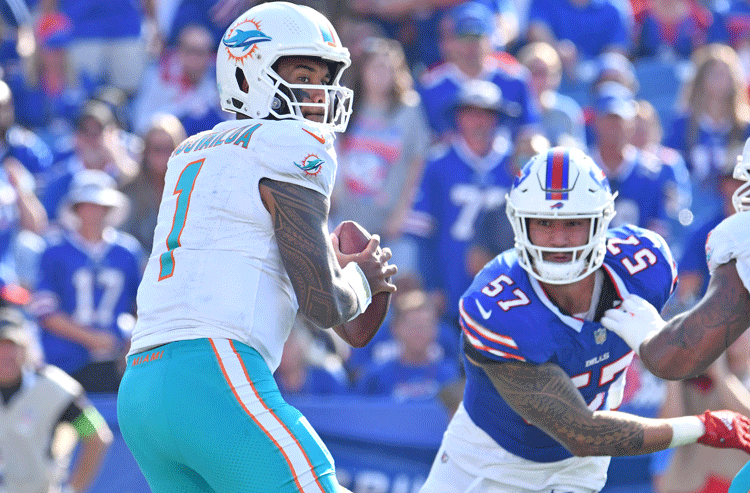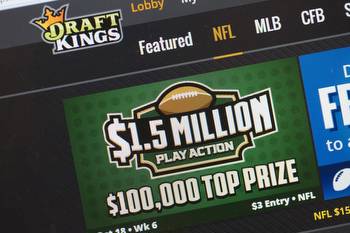Sports Betting’s Old Guard Embraces Cutting-Edge Technology

Generally speaking, technological breakthroughs are a young person’s gambit. But that doesn’t mean there aren’t some proverbial old dogs out there who are willing to learn new tricks.
This was abundantly clear when Alan Feldman, a distinguished fellow at UNLV’s International Gaming Institute, moderated an online discussion between US Bookmaking Chairman Vic Salerno and WEBE Gaming CEO John English, two of the more seasoned, well-respected players in the American gambling sector. The chat was one of several
When the topic of artificial intelligence was broached, English, who created the first sports betting kiosk to receive regulatory approval in the U.S., said, “It can’t be ignored. Rather than disparage it, I’ve befriended AI and found ways to make it work for our industry and our business — helping efficiencies, creating a more user-friendly interface, being able to predict what they’d normally want or look for.”
For his part, Feldman said he approached AI “with incredible skepticism” before being won over by the technology’s ability to distinguish between healthy and problem gamblers.
“Trying to hold AI back is like trying to prevent a wave from hitting sand,” he added.
English even had kind words for blockchain technology, which has suffered in the court of public opinion due to its association with cryptocurrency’s more unseemly characters.
“From a security and transparency aspect, there are blockchains to develop on today,” said English. “I know some people are anti-blockchain, but nonetheless, it offers transparency.”
From Iowa riverboats to SGPs
When asked what sports betting development had surprised him the most since PASPA’s 2018 repeal, Salerno replied, “I thought it would be more controlled by American companies than the Europeans. The European model is based on soccer. It’s very low-scoring, so they had to find a way to make it bettable — corner kicks and assists. Our system’s based on the four major sports and point spreads.”
Salerno then marveled at how much juice foreign-bred sportsbooks charged on same-game parlays, noting that such wagers have long been referred to as “associated parlays” in the States.
“I think when the customer figures out how much of a disadvantage they have in that parlay (the SGPs), it’ll change more toward our way of booking,” he predicted.
Salerno said he’d heard from offshore bookmakers who mentioned that their business has been better since sports betting was cleared for legalization outside of Nevada. Why? “Because we’re educating bettors,” explained Salerno.
Expanding upon that thought, English said, “People see all the commercials and the big money that’s being spent and think it’s a huge industry. It’s really a low-margin industry. The illegal bookmaker, they’ll scrape for the feeds, they won’t pay taxes, they have a lot of different advantages that we don’t have.
“Hopefully we’ll get more progressive in our industry. We’re looking at products to be able to offer credit and take advantage of things they’re doing offshore to make it better here in the U.S. Since PASPA, the U.S. is growing consistently, year over year, on handle. So it has worked, but it hasn’t put the illegal bookmaker out of business.”
One thing these old dogs all agreed on was that whatever changes and innovations emerge in the future, the U.S. gambling industry will adapt, survive, and even thrive, with Feldman recalling past fears that “riverboats in Iowa were going to destroy Las Vegas.”
“That hasn’t exactly happened,” he deadpanned.


































